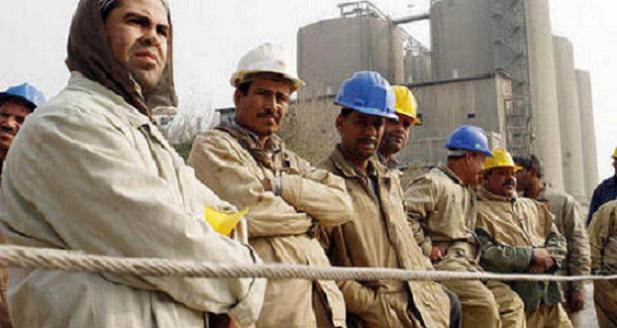Special Report Egyptian Workers: Protectors of the revolution
New in Ceasefire, Special Reports - Posted on Wednesday, June 1, 2011 20:48 - 0 Comments

By Jumanah Younis
Three weeks ago, on Friday the 13th of May, a relatively large protest took place in Tahrir Square, reported on in the foreign press – as has become somewhat routine – as a sign of Egypt’s continued revolutionary spirit in the months after Mubarak’s departure.
A few blocks away, on the fourth floor of the Journalists’ Syndicate, another kind of revolution was being discussed. Egypt’s fifth, annual ‘Socialist Days’ conference was getting underway, with a room packed full of workers and students listening to a panel discussion on the role of workers in the revolution, as well as a brief outline of the newly formed ‘Workers’ Party’ and independent trade unions.
Workers in Egypt can claim a lot more than a ‘role’ in the revolution. Their sustained industrial action predates Mubarak, and they have paid dearly for it over the years. The workers in El-Mahalla Al-Kubra, an industrial town to the north of Cairo, are a good example. Mahalla is home to the largest public-sector textile factory in Egypt: Misr Spinning and Weaving Company. The workers at the factory first went on strike in 1947 to demand the reinstatement of colleagues who were dismissed for demanding better working conditions (Egypt has been ranked among the 25 countries worldwide with the poorest labour conditions). Three workers were killed and 17 injured during a police crackdown on the strikers.
On a recent visit to Mahalla, I spoke to a retired worker who had participated in a strike at Mahalla in 1974, during Sadat’s rule. I asked him what he thought of the recent revolution in Egypt and he responded by describing the atmosphere in Egypt in the run up to the 25th of January. “I was on the train to Alexandria on the 24th and people were saying ‘the revolution is coming tomorrow’. We knew Mubarak wouldn’t be able to control it all. The security forces failed.” Has the revolution made it easier for the workers at the factory to fight for their demands? He shook his head. “The 25th of January was a bourgeois revolution, and the bourgeoisie control the outcome. We are the revolution of the poor, which will come soon, God willing.”
The workers at the Mahalla factory went on strike several times between 2005 and 2008. The strike on the 6th of April 2008 was perhaps the most significant, turning into a prolonged street war between police and protesters – foreshadowing what was to come a few years later. The strike also produced a pro-democracy movement by the name of the ‘6th of April movement’ which was heavily repressed under Mubarak.
The end of Mubarak, however, did not mark the end of the workers’ struggle. The post-revolution interim government attempted to pass a law banning strikes, and to introduce a fine of 500,000LE for organisers of industrial action. Though the army prevented the law from being passed, the message was clear: the revolution is over, and status quo repression is back. The ‘counter-revolution’ is an excuse exploited liberally by the ruling military council to try and suppress the workers’ movement and other pro-democracy movements; the idea being that Egypt now needs stability rather than radical change.
But for the workers of Mahalla, change is a means of survival. The privatisation of more and more factories in Egypt has meant low wages and poor conditions, as well as a huge numbers of redundancies. Imported products sell for cheaper than Egyptian goods, and competition keeps wages low. One of the workers I spoke to showed me the machine for hand-made carpets which he and his wife use. The work is long, difficult and uncomfortable, but prices for these hand-made items are steadily decreasing.
In the recent political debate running up to the first post-Mubarak elections, little mention has been made of the need to protect workers’ rights and improve labour conditions. “People are tired,” said one worker from the factory on the lack of response to their demands. The only thing they have gained is the right to form independent unions, which, although important, barely skims the surface of the list of reforms needed.
I saw a few of the workers I had met in Mahalla at the opening of the ‘Socialist Days’ conference. The first speech paid tribute to the protesters still fighting for freedom in Syria, Bahrain and Yemen. The workers’ movement was also acknowledged, raising a chorus of “Long live the working class!” and large red flags waving around the room. As the emerging political scene in Egypt fractures into smaller and smaller new parties, and tension rises on the streets in demonstrations, the future of Egypt looks disconcerting.
Part way through the conference, the discussion was interrupted for the announcement of some tentative good news: a new, five-party strong coalition had been formed, under the title ‘the Socialist Forces’. The news is welcome, although with sectarian tension rising and political alliances falling apart, it remains to be seen whether a united front can, once again, be formed.
Jumanah Younis is a writer and activist. She is studying Spanish and Arabic at Pembroke College, Oxford, and is currently living in Cairo.


Leave a Reply